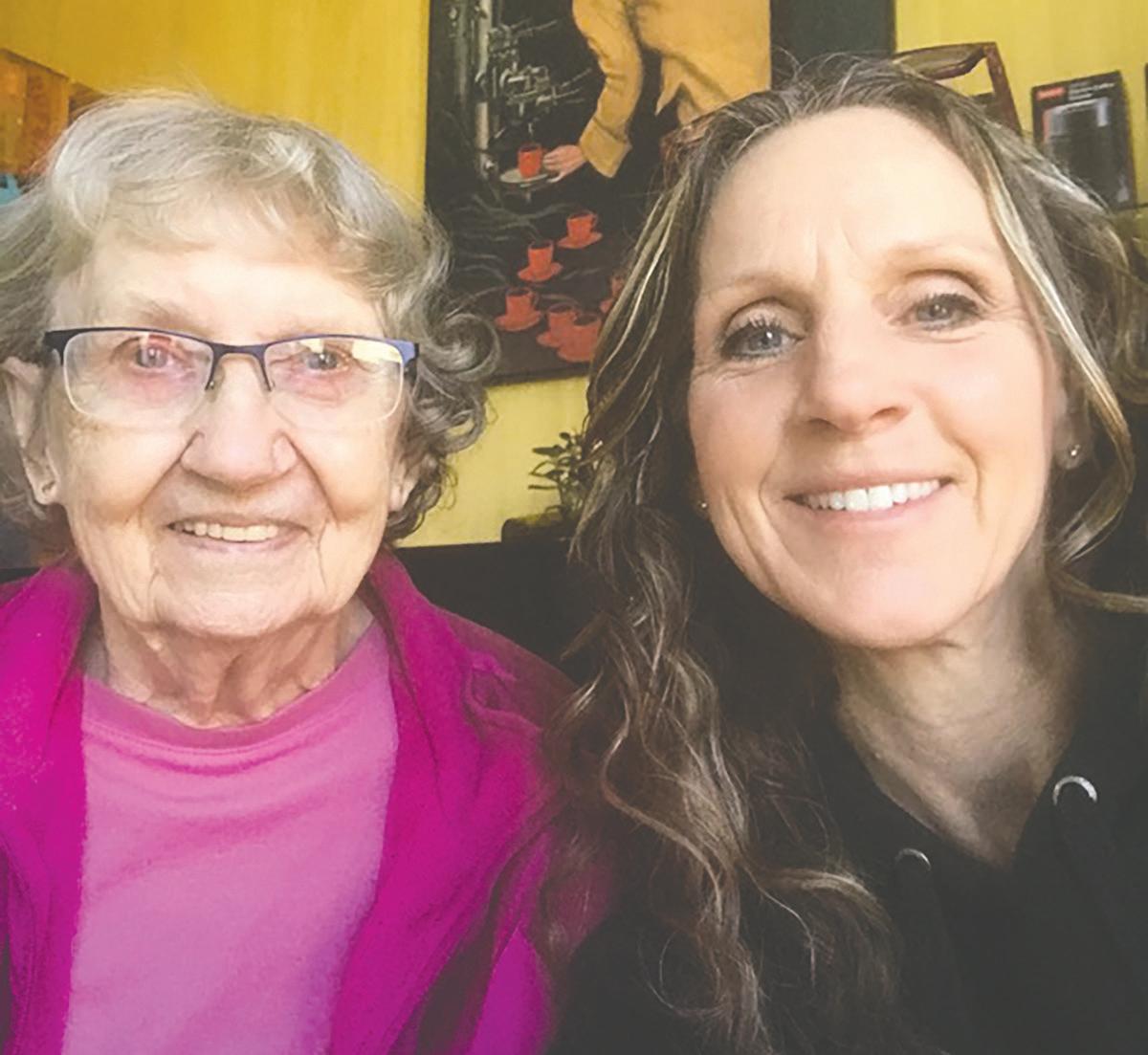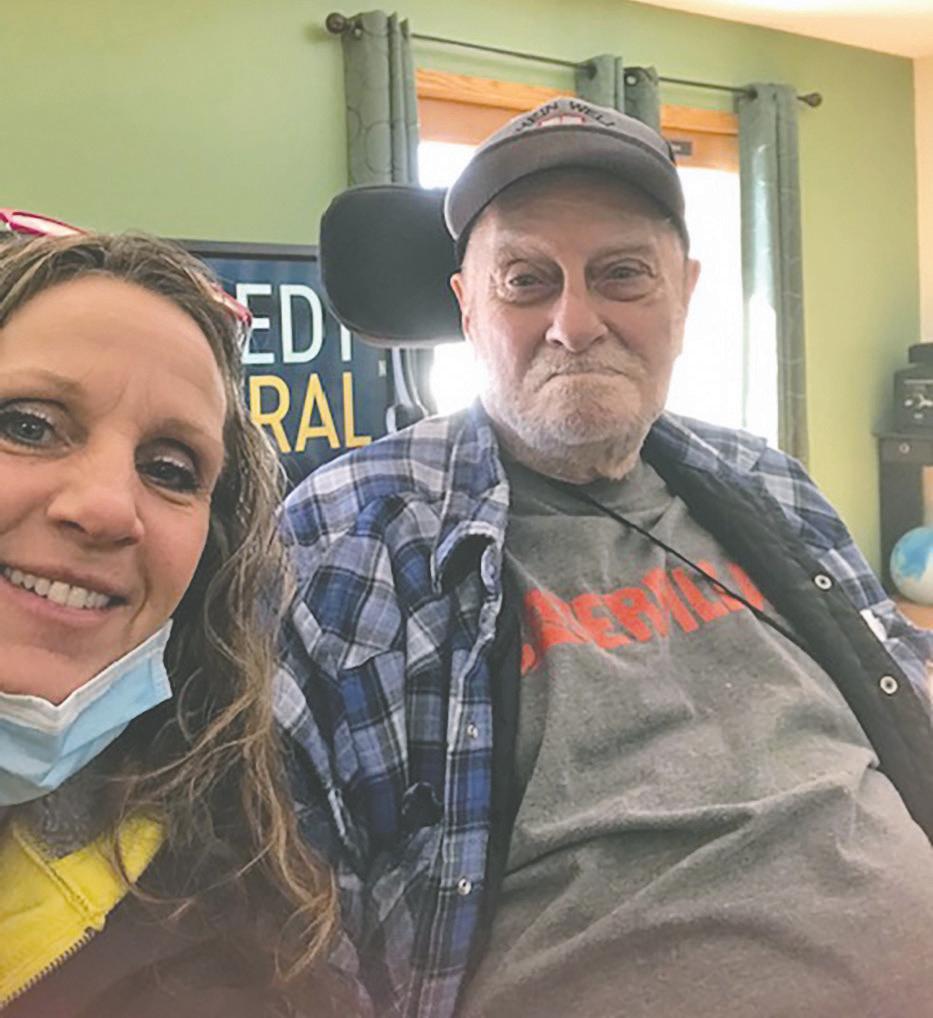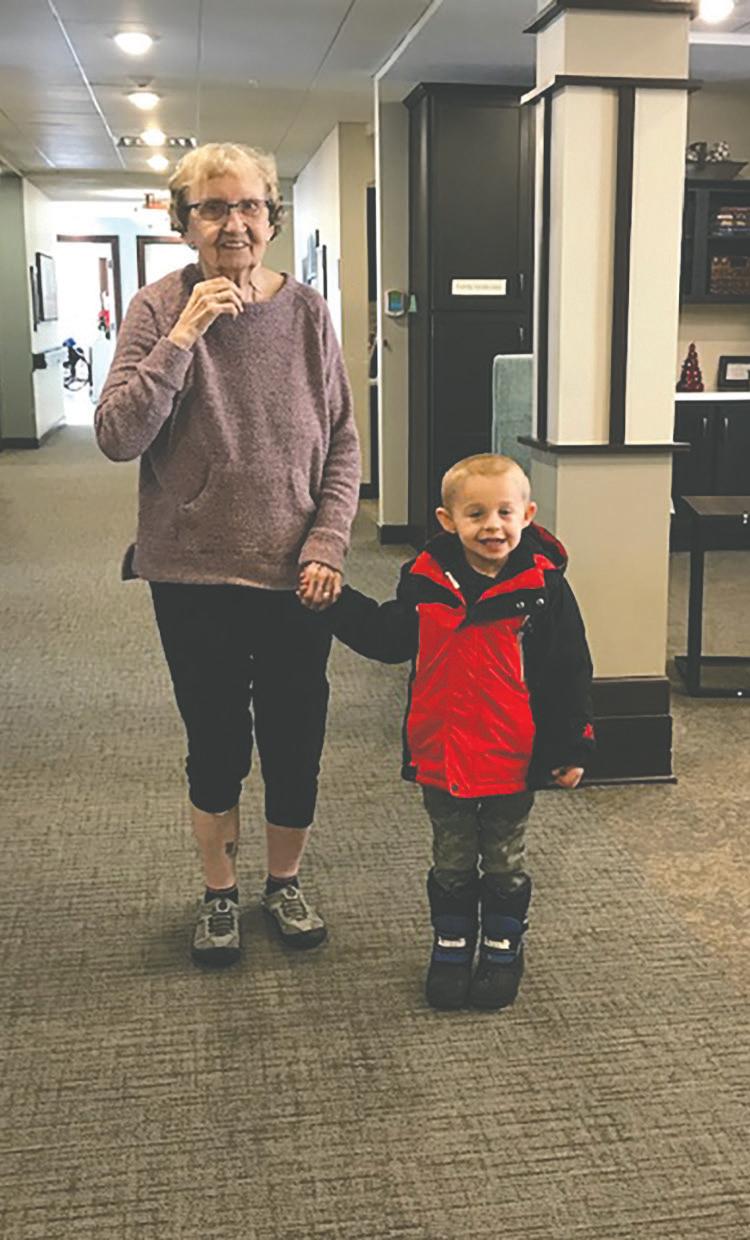
6 minute read
Plan for adult caregiving
LIVING AT HOME
From Page 1
Friendly phone calls
Denise Pederson began volunteering for LAH shortly after she and her husband, Randy, moved to Park Rapids in 2006.
A vet technician for 27 years in the Twin Cities, Denise developed multiple sclerosis (MS) and had to quit working. She volunteered for a similar program in the metro, calling people to wish them a “happy birthday.”
She continues to make those friendly calls for LAH clients.
“I like to be able to give back to the community,” she said. “I’m being useful this way because I can’t do other things.”
Denise is in a wheelchair full-time, and she has a service dog, Jaxson.
“But I can call and chit chat, so that’s what I do,” she said. “I call people just in the morning to see how they’re doing, to make sure they’re doing OK and kinda make their day.”
She’s calling one woman three days a week. They’ve been visiting with each other for almost three years. Both look forward to the conversations. Denise said they typically talk for half-an-hour.
The Pedersons make a wellness check and help, when they can.
Over the years, Denise said she has become very close with the people she calls. She enjoys meeting news people and knowing she’s making a difference in someone’s life. Plus, she’s made some “long-lasting, great friendships.”
The Pedersons regularly went out to dinner with one LAH client. “I called her for two or three years. She was a widow and just a lovely woman,” Denise recalled.
“If I could do more, I would,” she continued. “This is what I’m able to do, so if it breaks up the day for people, that’s great, and they usually look forward to me seeing them.”

PHOTOS CONTRIBUTED/MARY JO ZWEERINK
Top left: Mary Jo Zweerink of Osage, at right, loves visiting with her seven clients weekly. Sometimes they go for a drive and get a cup of coffee. Top right: Zweerink visits with seniors in a variety of settings, from private residents to memory care. Right: Zweerink often brings her grandson, Ryker, on her visits with LAH clients. She hopes to instill the volunteering spirit in her children and grandchildren.

After enjoying a fantastic 34-year career, Mary Jo Zweerink was looking for ways to contribute to the community when she retired in June 2020.
She knew Living at Home was a good fit.
Ever since being a certified nursing assistant in high school, Zweerink says she has relished spending time with the elderly.
“Volunteering with Living at Home allows me to fill a passion I’ve had for many years – meeting and getting to know some awesome seniors – and helping them with their everyday lives is so rewarding,” she said. “It brings me joy to see a smile come to their face, to share a hug with them and hear stories of their earlier life, even if it is the second or third time I’ve heard it.”
Zweerink currently visits with seven clients weekly. Some live at home, some are in memory care, assisted living or a nursing home.
“We play dice. We just visit,” she said. “I bring my grandkids.”
Sometimes Zweerink shops for groceries, takes someone to a doctor’s appointment or helps with light housekeeping.
A typical visit can be anywhere from 20 minutes to eight hours, Zweerink said. It all depends upon the volunteer’s availability and the client’s particular need.
“I felt that I’ve been blessed so I can be a blessing to others,” she said.
Zweerink said her visits have been “very rewarding,” giving her a sense of purpose.
“God knew what he was doing when he tugged me to close a chapter in my life and move on to the next,” Zweerink said. “I can only hope that when I’m elderly and need some assistance that there are others that are willing to share their time with me.”
Resources, support
Living at Home has oodles of resource and referral information. Say, for example, you need someone to shovel snow. “We maintain all of these lists that are available in our community,” Carmichael said.
Susan Kalm is eldercare services coordinator. She takes phone call requests from elders and matches them with a volunteer who can help.
Additionally, LAH has a caregiver support program, led by Jill Grimes. This is available for anyone who is caring for someone aged 60 or older.
Grimes facilitates monthly caregiver discussion groups, provides one-on-one coaching sessions with caregivers and finds appropriate resources for supporting both the caregiver and the care receiver.
Betsy Meyer is the Dementia-Friendly Park Rapids coordinator. Her role in 2022 is education and awareness activities, along with developing a resource packet for the newly diagnosed.
Based on Hubbard County’s population, an estimated 500 people are diagnosed with Alzheimer’s. “Usually, they have one, if not two, caregivers involved,” Carmichael said.
Carmichael explained that LAH does not charge for providing its services. “However, we do cost sharing, which is a suggested donation amount only for transportation and respite care. It’s a very, very minimal amount,” she said.
Those in need will never be turned away because of inability or unwillingness to donate, she added.
“There’s never a day that goes by that I don’t say to somebody I absolutely love and adore my job. I’m talking with seniors every day. My staff is unbelievable,” she said.
LAH is always looking for additional volunteers.
Its offices are located at 120 Main Ave. N. in Park Rapids. For more information, call 732-3137, write to P.O. Box 465, Park Rapids, MN, 56470, or go to www.parkrapidslivingathome.org.
The steps families should take to plan for adult caregiving
Barry J. Jacobs, Psy.D., a clinical psychologist and family therapist, is a leading educator about family caregiving. One reason for his effectiveness is that he has been a caregiver himself. I sent Dr. Jacobs a note explaining a question that I’d received about preparing for caregiving and expected a brief quote in return. However, in accordance with his generous nature, he provided so much more.
Therefore, this week, I’m honored to have Dr. Jacobs answer our reader who wondered how to plan for caregiving: 1. “The fact that you are already thinking about caregiving and beginning to plan is half the battle,” Dr. Jacobs says.
The next steps are to: ► Learn about the key issues your parents and in-laws may face. ► Learn how to discuss those issues with them and develop a collaborative partnership. ► Determine what you are willing, able, and available to do for them as their needs increase. 2. I’m a fan of Tim Prosch’s book, “The Other Talk,” available on Amazon. While it is written from the viewpoint of the topics that an aging parent should bring up with their children, it outlines the major concerns of adult children, including finances, advanced medical directives and living environment. 3. Before discussing any of these issues with an aging parent, an adult child should first lay the groundwork for working harmoniously together.
Minding Our Elders
BY CAROL BRADLEY BURSACK Columnist
CAREGIVING: Page 5
Shannon Geisen can be reached at sgeisen@ parkrapidsenterprise.com.

Green Pine Acres Skilled Nursing Facility Long Term Care & Transitional Care Unit Newly remodeled private rooms/baths Woodside Manor Assisted Living Assisted Living with Services







